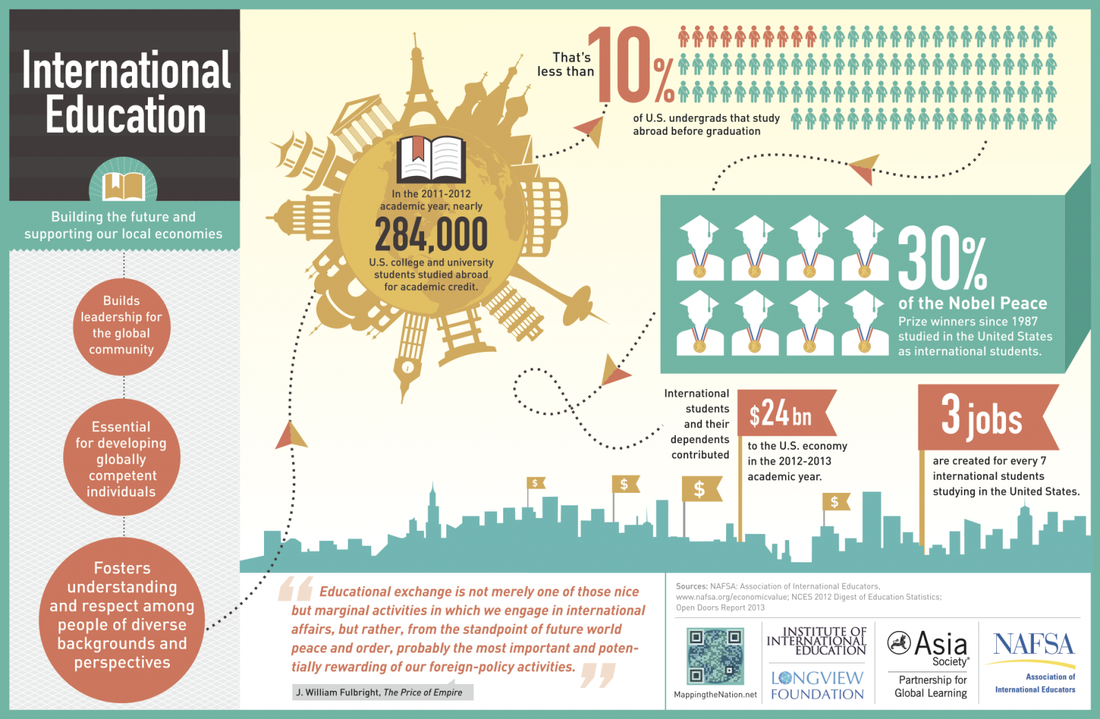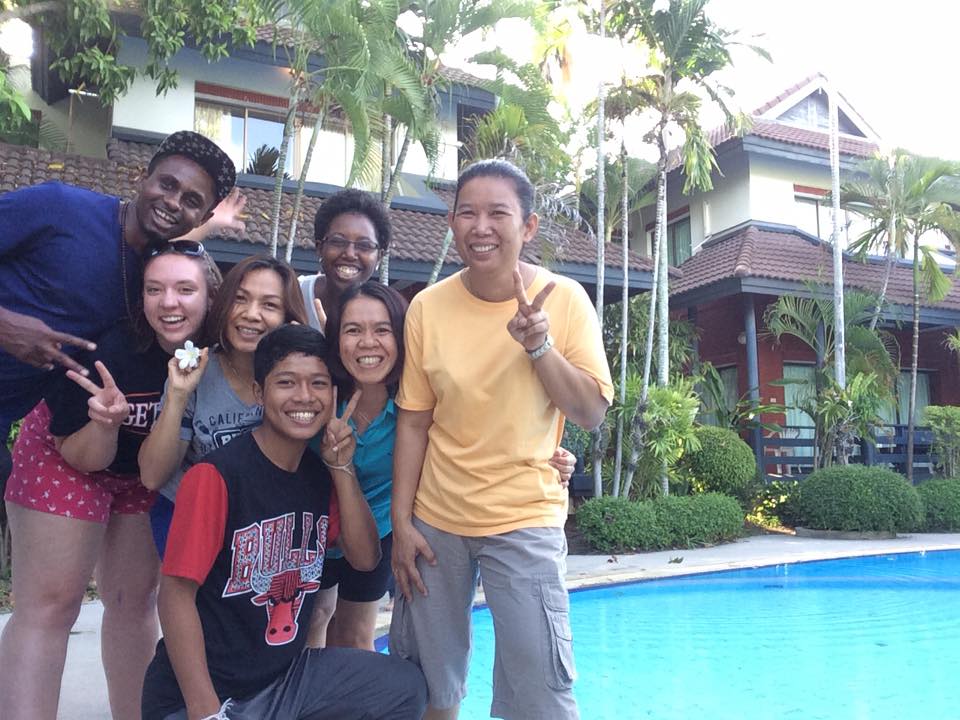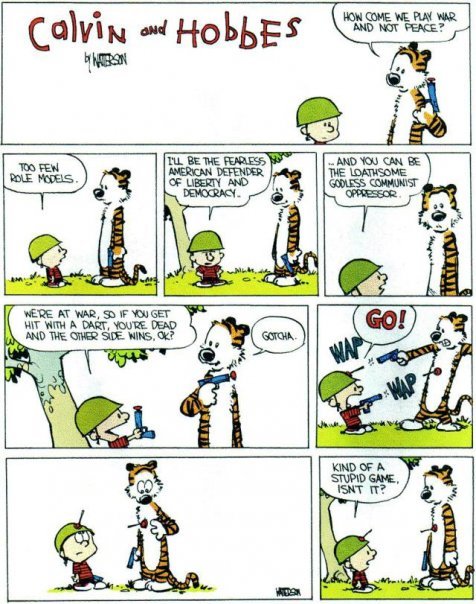personal reflections on the 2016 educationusa forum
But I enjoy my job because it matters.
Education matters. Just look at the infographic above.
This week I had the pleasure of attending the EducationUSA in Washington, D.C. where I was able to meet and brainstorm with advisors from 170 countries. There were education specialists from Argentina and Armenia to Cameroon and Colombia to Gabon and Georgia to Venezuela and Vietnam to Tunisia and Turkmenistan.
We were all here for the same purpose: to increase global peace and security through educational and cultural exchange.
While this was a professional conference, here are three personal takeways:
1. We Are Connected
-In Spain they say, "El mundo es un pañuelo." In the U.S., we say "It's a small world." In both languages, the sentiment is true. We are more connected than we think. It never ceases to amaze me how large and diverse our world is. From bioecology to language and culture, there is always something new to learn and interesting to experience. But what fascinates me is how quickly a woman from a small town in New York can find common ground with a gentleman from Niger or a woman from Syria or a student from Kazakhstan.
2. A Little Bit Goes A Long Way
-This is true in more ways than one. Conferences as large as this one can be intimating for first-timers. I am always grateful to friendly people that welcome you to sit at their table or offer a handshake first. It's all the encouragement I need to initiate a conversation.
Even for students, something as small as waiving an application fee can inspire a great amount of hope that their path to higher education is possible.
3. Paying It Forward
-It was encouraging to hear success stories of students who completed their education in the U.S. and went back to their countries and made a huge impact. These are stories that move deans and donors to "do more" to bring hard-working and high performing students to the U.S.. Even though decision makers ask for statistics and numbers, these testimonies reveal the true return on investment.
The professional networks and social connections I made during this conference provided a mid-year push.







 RSS Feed
RSS Feed